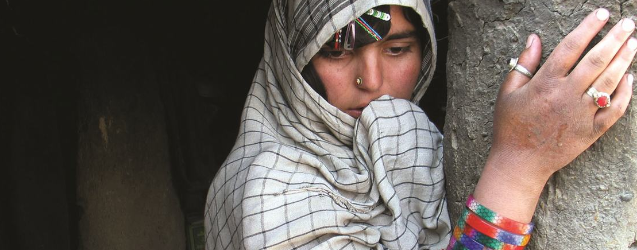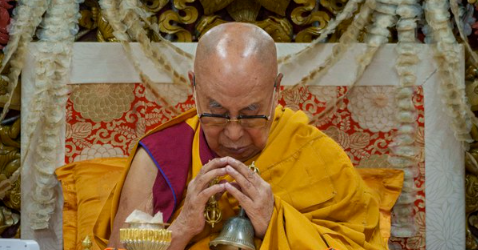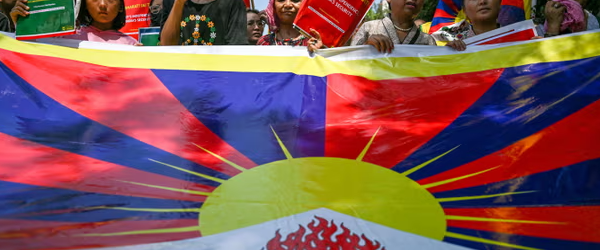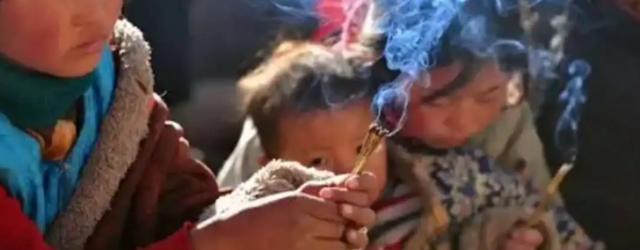A Hamas official says Israel is refusing to withdraw from Gaza, rejecting the return of displaced Palestinians to their homes and failing to commit to allowing enough aid to the territory, leaving nothing to agree on.
UN experts, including the special rapporteur on violence against women and girls, say they are distressed by reports of “multiple forms of sexual assault” against Palestinian female detainees by Israeli forces.
Aid groups say they are working to evacuate dozens of patients and medics trapped inside Nasser Hospital in Khan Younis, which has been put of out service by Israeli forces.
Israel carries out raids deep inside southern Lebanon as cross-border clashes with Hezbollah escalate.
At least 29,092 Palestinians have been killed and 69,028 injured in Israeli attacks on the Gaza Strip since October 7, the Health Ministry says.
World
US will arm Israel in response to possible invasion in Rafah, Gaza: Report
The United States is preparing to send more bombs and other weapons to Israel even as it pushes for a ceasefire in the war on Gaza and has said it opposes Tel Aviv’s plans for a ground invasion in southern Rafah where more than half the enclave’s displaced population is trapped.
The proposed arms delivery includes about a thousand each of MK-82 500-pound (227kg) bombs and KMU-572 Joint Direct Attack Munitions (JDAMs) that turn unguided munitions into precision-guided bombs, The Wall Street Journal reported on Friday, citing unnamed US officials.
The US is further considering sending FMU-139 bomb fuses, with the total shipment estimated to be worth tens of millions of dollars, which will be paid from US military aid to Israel.
The report cited an assessment of the proposed arms transfer drafted by the US embassy in Jerusalem as saying the Israeli government has requested “rapid acquisition of these items for the defence of Israel against continued and emerging regional threats”.
The assessment also dismisses potential human rights concerns, saying “Israel takes effective action to prevent gross violations of human rights and to hold security forces responsible that violate those rights”.
The administration of US President Joe Biden has so far twice bypassed Congress to urgently send bombs and other munitions to Israel amid the war that has killed more than 28,000 Palestinians, mostly children and women, and left tens of thousands more injured or missing.
According to the WSJ, the US has provided roughly 21,000 precision-guided munitions to Israel since the start of the war last October. It said the remaining weapons are enough to sustain 19 weeks of bombing Gaza, but that would shrink to days if Israel also launches a full assault on Lebanon, where it has been engaged in border fighting with Hezbollah.
On Friday, Biden said he has repeatedly told Israeli Prime Minister Benjamin Netanyahu there “has to be a temporary ceasefire” in Gaza during “extensive” conversations this week.
In the face of widespread international condemnation, Israel has insisted it will soon launch a ground invasion of Rafah, the southernmost city in the Gaza Strip that borders Egypt. It is where an estimated 1.4 million of the enclave’s 2.3 million population has been forcibly displaced in Israeli attacks across Gaza in the four-month conflict.
While the Biden administration maintains that an Israeli incursion into the densely packed city would be a “disaster”, it has said that such an operation would not result in tangible consequences, such as a freeze in US weapons transfers.
Biden said he cautioned Netanyahu against moving forward with a military operation into Rafah without a “credible and executable plan” to protect Palestinians sheltering there.
“I anticipate, I’m hoping, that the Israelis will not make any massive land invasion [of Rafah] in the meantime. So, my expectation, that’s not gonna happen,” Biden said.
Reporting from Washington, DC, Al Jazeera’s Kimberly Halkett said it was “unclear” if Netanyahu was listening Biden.
“Historically he has not, especially when it comes to the US cautioning about how to conduct the Israeli military campaign,” Halkett said.
Washington, some of Israel’s other allies, in addition to the United Nations and a slew of rights groups, have said an assault on Rafah given the dire humanitarian situation suffered by Palestinians in Gaza would prove catastrophic.
Netanyahu has ordered the military to draw up plans that would evacuate civilians, but top UN officials have said there is no feasible way of moving people from the area and that there is no safe place left in Gaza.
Israeli defence minister Yoav Gallant said the country is “thoroughly planning” its ground invasion of Rafah, and Netanyahu promised early on Friday to reject “international dictates” on a long-term resolution of Israel’s conflict with the Palestinians.
The rights of women in Afghanistan are still being severely undermined.
Police enforcement has increased harassment in public spaces and further limited women’s ability to leave their homes, according to testimony from 745 Afghan women participating in the latest survey by UN Women, International Organization for Migration (IOM) and the UN’s Assistance Mission in Afghanistan (UNAMA).
The insights follow recent reports of the arbitrary and severe enforcement of the hijab decree, particularly in Kabul, the agencies said – which began publishing quarterly consultations with diverse Afghan women a year after the Taliban took power in August 2021.
Since then, the de facto authorities have introduced more than 50 decrees that directly curtail the rights and dignity of women, Friday’s report states.
Consultations took place between 27 January and 8 February, with UN Women, IOM and UNAMA gathering views online and in-person – where it was safe to do so – and via group sessions and individual telesurveys. The agencies were able to reach women across all of Afghanistan’s 34 provinces.
Participants were asked to give views on the period from October to December 2023.
Fears mount
The results show that women fear arrest and the long-lasting stigma and shame associated with being taken into police custody, the report stated.
In addition, over half of women – 57 per cent – felt unsafe leaving the house without a mahram, a male guardian. Risks to their security and their anxiety levels increased whenever a new decree was announced specifically targeting them.
Only one per cent of women indicated that they had “good” or “full” influence on decision making at the community level, a major decrease from 17 per cent in January 2023.
Lack of agency
A lack of any safe public space for women to gather and share views and experiences, build communities and engage on issues they considered important left them “without a pathway to participate in or influence decision making”, the report said.
Women’s self-reported “good” or “full” influence over household decisions has drastically decreased from 90 per cent in January 2023 to just 32 per cent this January.
They continued to link their lack of rights, educational prospects and jobs, to declining influence at home, the report found.
Gender roles and subordination
The women also outlined the intergenerational and gendered impact of the de facto authorities’ restrictions and the accompanying conservative shifts in social attitudes towards children.
Some respondents said boys appeared to be internalizing the social and political subordination of their mothers and sisters, reinforcing a belief that they should remain in the home in a position of servitude.
Meanwhile, girls’ perceptions of their prospects were changing their values and understanding of their future and potential, the findings showed.
International action
Thirty-two per cent of respondents stated that international recognition of the de facto authorities should happen only after reversing all restrictions, while 25 per cent of them said it should follow the reversal of some specific bans and 28 per cent said that recognition should not happen at all, under any circumstances.
In July 2023, a similar question found that 96 per cent of women maintained that recognition should only occur after improvements in women’s rights or that it should not occur at all.
Best way forward
Some respondents expressed deep disappointment with some UN Member States who in their efforts to engage the Taliban, were overlooking the severity of what is an unprecedented women’s rights crisis and the associated violations of international law, based on treaties ratified by previous Afghan governments.
Some respondents argued that one way for the international community to improve their situation would be to link international aid to better conditions for women and to provide opportunities for women to talk directly with the Taliban.
Press Release: Resolve Tibet Act Passes US House with Strong Bipartisan Support
Dharamshala: On 15 February 2024, the US House of Representatives overwhelmingly passed the bipartisan Resolve Tibet Bill, officially titled Promoting a Resolution to the Tibet-China Dispute Act (HR 533). The House’s approval of the bill signifies a major achievement for Tibetans and our supporters demonstrating a strong bipartisan support toward Tibet and the Tibetan cause. The bill reaffirms the US policy of supporting direct dialogue between the People’s Republic of China and representatives of His Holiness the Dalai Lama or with democratically elected Tibetan leaders, without any preconditions, to resolve the Tibet-China conflict.
Following the passage of the bill in the House, Sikyong states, “On behalf of Tibetans in occupied Tibet and in exile, I extend gratitude to Representative Jim McGovern and Representative Michael McCaul for introducing the bill along with all the members for supporting this bill in the house. This achievement moves us closer to making the bill into law. We are now positively looking forward to the bill’s approval by the Senate.” Sikyong further adds, “This success reflects the collaborative advocacy efforts of the CTA, the International Campaign for Tibet, Tibetan associations and NGOs, Tibet Support Groups and individuals.”
The enactment of this bill will strengthen and reinforce the Middle Way Approach policy and the Central Tibetan Administration’s commitment to dialogue to resolve the Tibet-China conflict in the best interest of both the Tibetan and Chinese peoples.
A measure in the US House calls on China to settle the Tibet issue
The U.S. House of Representatives on Thursday passed a bill that urges China to resolve issues related to Tibet through dialogue with the Dalai Lama or Tibetan leaders and directs the State Department to actively counter disinformation about the history of the formerly independent country.
The Promoting a Resolution to the Tibet-China Dispute Act, also known as the Resolve Tibet Act, passed by a vote of 392-28, with 11 abstentions.
To become law, it still needs to pass the Senate.
It calls for a resumption in negotiations between Chinese officials and the Dalai Lama, the spiritual leader of Tibetan Buddhists, or his representatives. Since 2010, no formal dialogue has happened and Chinese officials continue to make unreasonable demands of the Dalai Lama as a condition for further dialogue.
The bipartisan bill was introduced by House Foreign Affairs Committee Chairman Michael McCaul, a Texas Republican, and Rep. Jim McGovern, a Democrat from Massachusetts, along with Senators Todd Young, an Indiana Republican, and Jeff Merkley, an Oregon Democrat.
The Dalai Lama fled Tibet into exile in India in the midst of a failed 1959 uprising against rule by China, which invaded the then independent Himalayan country in 1950.
Since then, Beijing has sought to legitimize Chinese rule through the suppression of dissent and policies undermining Tibetan culture and language.
‘Clear message’
The legislation articulates that Tibet includes the Tibetan-populated regions of Gansu, Qinghai, Sichuan and Yunnan provinces, in addition to the Tibet Autonomous Region, thereby challenging China’s claim that Tibet is restricted to that latter region alone.
The bill’s passage “sends a clear message to China that Tibet has always been an independent nation and negates the Chinese government’s claim that Tibet has historically been a part of China,” said Namgyal Choedup, the representative of His Holiness the Dalai Lama and the Central Tibetan Administration to North America.
The bill states that “claims made by officials of the People’s Republic of China and the Chinese Communist Party that Tibet has been a part of China since ancient times are historically inaccurate.”
On Tuesday, McGovern, one of the lead sponsors of the bill, urged Congress to support the legislation, saying, “A vote for this bill is a vote to recognize the rights of the Tibetan people. And it is a vote to insist on resolving the dispute between Tibet and the People’s Republic of China peacefully, in accordance with international law, through dialogue, without preconditions. There is still an opportunity to do this. But time is running out.”
Beijing believes that the Dalai Lama, who lives in Dharamsala, India, wants to split off the Tibet Autonomous Region and other Tibetan-populated areas in China’s Sichuan and Qinghai provinces from the rest of the country.
Chinese authorities have urged Tibetan monks to denounce the Dalai Lama, and even possessing a photo of him is a crime.
However, the Dalai Lama does not advocate for independence but rather a “Middle Way” that accepts Tibet’s status as a part of China and urges greater cultural and religious freedoms, including strengthened language rights that are guaranteed for ethnic minorities under China’s constitution.
“Today’s vote shows that U.S. support for Tibet is only growing stronger even after 65 years of China’s control and occupation,” International Campaign for Tibet President Tencho Gyatso told RFA.
“China has been playing a waiting game, hoping that the international community would eventually abandon Tibet. Clearly that is not the case,” he said. “The Chinese government should take the hint and restart the dialogue process with Tibetan leaders.”
Bill on Tibet-China Dispute Passed by House
The US House today passed a bill that will strengthen US efforts to push the Chinese government to resolve the longstanding Tibet-China dispute through dialogue with Tibetan leaders.
The bipartisan Promoting a Resolution to the Tibet-China Dispute Act passed today, Feb. 15, 2024.
Known as the Resolve Tibet Act, the bill aims to pressure the Chinese government to resume negotiations with the Dalai Lama’s envoys or the democratically elected leaders of the Tibetan people, which have been stalled since 2010.
The bipartisan bill—introduced by Reps. Jim McGovern, D-Mass., and Michael McCaul, R-Texas—dismisses as inaccurate the Chinese claim that Tibet has been part of China since ancient times and empowers the State Department to actively counter China’s disinformation about Tibetan history, people and institutions.
Following today’s vote, focus will now shift to passing the Senate version of the legislation, introduced by Sens. Jeff Merkley, D-Ore., and Todd Young, R-Ind.
In recent years, the US government has dramatically increased its support for Tibet, including Congress passing the Reciprocal Access to Tibet Act of 2018 and the Tibetan Policy and Support Act of 2020.
Today’s approval of the Resolve Tibet Act in the House comes as Tibetans prepare to mark 65 years since China forced the Dalai Lama to flee into exile and seized full control of Tibet.
After 65 years of Chinese occupation, Tibet now ranks as the least-free country on Earth alongside South Sudan and Syria, according to the watchdog group Freedom House.
Quotes from Congress members, Tibetan leaders
Several members of Congress spoke in support of the Resolve Tibet Act on the House floor on Feb. 13.
Rep. Jim McGovern, D-Mass., one of the lead sponsors of the bill, said: “A vote for this bill is a vote to recognize the rights of the Tibetan people. And it is a vote to insist on resolving the dispute between Tibet and the People’s Republic of China peacefully, in accordance with international law, through dialogue, without preconditions. There is still an opportunity to do this. But time is running out.”
Rep. Young Kim, R-Calif., said: “This bill ensures that Tibetans have a say in their own future. It stresses the need for a direct dialogue between the CCP and the democratically elected leaders of Tibet, and that any resolution must be peaceful and include the voice of the Tibetan people. Tibetans are democracy-loving people who wish to freely practice their religion and have their distinct identity acknowledged and respected. I’m proud to play a small part in supporting this dream for the Tibetan people.”
Rep. Kathy Manning, D-N.C., said: “Since 2010 Beijing has also refused to meet its international obligations to engage the Dalai Lama and his representatives to resolve the Tibet issue through dialogue. At the same time Beijing has unleashed a disinformation campaign to mislead the world about Tibet and its history. For this reason, we must pass H.R.533, which calls the PRC out for its repression and its unwillingness to engage the Tibetan people.”
Rep. Chris Smith, R-N.J., said: “Amid these threats to Tibetans in Tibet, the Chinese Communist Party also seeks to extend its repressive reach abroad, targeting for surveillance and harassment Tibetan diaspora communities in the United States, in India and in Nepal. The Chinese Communist Party has long engaged in crimes against humanity in Tibet and against Tibetans, plain and simple.”
Representative of His Holiness the Dalai Lama and the Central Tibetan Administration to North America Namgyal Choedup said: “Tibetan people will always cherish the bipartisan support for Tibet in the US Congress. I would like to thank Chairman McCaul and Congressman Jim McGovern for taking the lead on this vital legislation. Tibetan people, despite seven decades of brutal and paralyzing oppression by the CCP, have never abandoned hope. The H.R.533 passage by the US House will boost the determination of the Tibetan people and their resilience. It also sends a clear message to the current regime under Xi Jinping that if they truly desire social harmony and stability, the only way is to come to the negotiating table in good faith to resolve the Tibet-China dispute.”
International Campaign for Tibet President Tencho Gyatso said: “Today’s vote shows that US support for Tibet is only growing stronger even after 65 years of China’s control and occupation. China has been playing a waiting game, hoping that the international community would eventually abandon Tibet. Clearly that is not the case. The Chinese government should take the hint and restart the dialogue process with Tibetan leaders. We thank Congressman McGovern and Chairman McCaul and all the representatives who helped pass the Resolve Tibet Act today, and we look forward to working with Sens. Merkley and Young, as well as our supporters across the country, to make this bill the law of the land.”
What the bill does
The Promoting a Resolution to the Tibet-China Dispute Act states that it is US policy that the dispute between Tibet and China must be resolved in accordance with international law, including the UN Charter, by peaceful means through dialogue without preconditions.
The legislation adds that the US should:
Promote substantive dialogue without preconditions between the Chinese government and the Dalai Lama or his representatives or the democratically elected leaders of the Tibetan community. The US could also explore activities to improve prospects for dialogue leading to a negotiated agreement on Tibet.
Coordinate with other governments in multilateral efforts toward the goal of a negotiated agreement on Tibet.
Encourage China’s government to address the aspirations of the Tibetan people regarding their distinct historical, cultural, religious and linguistic identity.
Use public diplomacy efforts to “counter disinformation about Tibet” from the Chinese government and Communist Party, including “disinformation about the history of Tibet, the Tibetan people, and Tibetan institutions including that of the Dalai Lama.”
Empower the special coordinator for Tibetan issues in the State Department to work to ensure that US government statements and documents counter disinformation about Tibet.
Although the Chinese government attempts to shape a narrative that Tibet is only the Tibet Autonomous Region—an administrative region that spans less than half the Tibetan homeland—this legislation makes clear that Tibet also includes Tibetan regions of Gansu, Qinghai, Sichuan and Yunnan provinces.
Beijing is charged of eavesdropping on, threatening, and blackmailing Tibetan exiles.
Thousands of Tibetans around the world have been subjected to spying, blackmail and threats against family members still living in Tibet, according to a new report.
The Chinese government’s repressive policies in Tibet continue to be documented, but the new report by the Tibetan Centre for Human Rights and Democracy (TCHRD) is the first to investigate the widespread targeting of exiles in countries including the US, India, France, Australia and Canada, researchers say.
China increasingly aims to stifle debate or criticism from Tibetans, Hongkongers and Uyghurs outside its borders in a tactic known as transnational repression.
Dhonden, a Tibetan living in Switzerland, told researchers for the TCHRD: “In 2021, I received a video call from one of my siblings in Tibet. When I picked up, I found they were calling from the local police station, surrounded by half of our family.
“Police officers urged me to behave well abroad, and refrain from engaging in activities that could go against Chinese policies. If I failed to obey, officers said my relatives would suffer consequences.”
The researchers gathered testimony from 84 exiled Tibetans across 10 countries and found 49 of them had received threats of harm to their relatives still living in Tibet. There are an estimated 125,000 Tibetans in total living in exile.
Tenzin Dawa, TCHRD executive director, said the phenomenon was “shockingly” more severe in Europe than elsewhere, adding that US authorities were more active in responding to Chinese transnational repression.
Some Tibetans have seen themselves cut off from their families, with levels of repression increasing during “sensitive” periods such as Losar, the Tibetan new year – which begins this weekend – or the 10 March anniversary of the 1959 Tibetan uprising.
Tibet was annexed by China in 1951 in what Beijing terms as a peaceful liberation and Tibetans describe as an invasion. Government crackdowns in the region accelerated after mass protests in 2008.
Tsering Topgyal, assistant professor of international relations at Birmingham University, said Tibetans living in exile were targets because the community was one of the most organised groups overseas that were affected by, and overtly critical of, Chinese Communist party rule.
Since the Central Tibetan Administration, Tibet’s government in exile, was established in the early 1960s, Tibetans have set up schools and religious institutions as well as advocating for their rights in the international arena.
Gyal Lo recalls discussing Tibetan autonomy over dinner with Han Chinese friends and colleagues before 2018. Since then, however, many of them have cut ties with him.
After receiving calls from family urging him to stop criticising the Chinese government in foreign media, Gyal Lo no longer feels safe contacting them.
“The day I left home, I told my father, who is 86 years old: ‘I have to go, but I’ll visit you soon,’” he said. “I never imagined this could happen, this kind of completely cutting off from [family].”
Gyal Lo said transnational repression not only severed family connections, but also undermined solidarity among the Tibetan diaspora and reduced their ability to mobilise against Chinese policies in Tibet.
China may monitor Tibetans via an anti-fraud app, according to a report
A Chinese app aimed at preventing fraud could be used to monitor Tibetans, according to a new report.
The investigation by Tibet research groups found the app could monitor users’ texts, internet browser histories and access personal data.
They also alleged some Tibetans were being forced to download the app.
Restrictions in Tibet have increased in recent years, say rights groups, tightening the screws on an already heavily controlled part of China.
Authorities have ramped up state surveillance and censorship in recent years, particularly during the pandemic.
Politically sensitive regions such as Tibet and Xinjiang have especially come under scrutiny. Beijing has long been wary of “secessionism” in these areas, but has stepped up crackdowns under leader Xi Jinping’s rule which has emphasised nationalist unity.
The new report, by research network Turquoise Roof and rights group Tibet Watch, centres on the controversial National Anti-Fraud Centre app which was rolled out in 2021.
While the report did not present any evidence that the app was actively targeting Tibetans, it said the app “aligns with extensive surveillance practices” and could aid the Chinese government’s efforts in controlling them.
The National Anti-Fraud Centre has been promoted as a scam prevention app which can detect potential fraudulent texts and calls, while allowing users to report scams and receive help quickly from authorities. China has been battling a wave of internet and phone scams in recent years.
Turquoise Roof conducted a forensic analysis of the app and says it found that some of its functions could be exploited for surveillance purposes.
The app can monitor incoming text messages, and access call logs and internet browser histories. It can also capture users’ inputs such as passwords, and take photos which would allow it to gather visual data on users and surroundings.
Its face recognition verification feature could also be used for large-scale harvesting of data to enhance tracking and monitoring of Tibetans, the report added.
One way is by forcing Tibetans to download the app. One refugee told Tibet Watch last year he was stopped at a police checkpoint while on his way home from school, and told to install the app on his phone.
Complaints about mandatory downloads of the app arose soon after its launch, when it was installed on an estimated 200 million phones.
Some local government agencies made it compulsory for employees, while others had to download the app in order to enrol their children into schools or apply for identification cards, reported the Financial Times.
The newspaper also spoke to users who said they were contacted by the police after the app detected they had visited foreign financial news websites, including Bloomberg.
Separately, Turquoise Roof uncovered from government procurement notices that Chinese authorities were maintaining a large database of Tibetan individuals deemed as a threat to stability. The database used software from US company Oracle.
They said it was “reasonable to hypothesise” that any data collected by the anti-fraud app could be used in this database.
The report called for the Chinese government to put in place greater privacy protections and to investigate claims of coercion to download the app.
It also called for international companies and governments to ensure they do not provide resources for China’s mass surveillance programmes.
Beijing has wielded a tight grip on Tibet since it sent in troops in 1950 to enforce its claims of sovereignty over the region.
Activists say China limits Tibetans’ freedom of travel by controlling their passports, and also heavily monitors their communications with the outside world.
Tibet Watch has documented several cases of Tibetans detained for their messages on popular messaging platform WeChat, and instances where accounts and keywords deemed too politically sensitive were suspended or scrubbed.
Besides Tibet, China has famously employed mass surveillance techniques in Xinjiang to control the Uyghurs.
In 2019 Human Rights Watch found that authorities were using a surveillance platform and app to monitor the movements and data of people in Xinjiang.
That same year, an investigation by several Western newspapers found that border police were installing surveillance apps on the phones of visitors to the region.
China is attempting to use boarding schools to separate Tibetan students from their culture.
Indore, Jan 30 (PTI) A member of Tibet’s Parliament in exile on Tuesday claimed that China was trying to alienate Tibetans from their native culture through “colonially-run” boarding schools.
A two-member delegation from Tibet’s Parliament in exile visited here as part of a campaign to increase interaction with the Indian people and took part in programs organized with the help of the India-Tibet Cooperation Forum.
“In Tibet, children above three years of age are being forcibly sent to colonially-run boarding schools by China, so that they could be taken away from their original culture, language and traditions, and Chinese culture could be imposed on them,” said Tenzin Choezin, a member of the delegation, during a media interaction at the Press Club here.
“China gets nervous even if someone congratulates the Dalai Lama on his birthday. China always behaves like a child who feels insecure,” she added.
She also supported the appeal, made in some quarters in India, for boycott of cheap Chinese products.
China creates tensions on the borders of India and other countries by misusing the money earned through these exports, Choezin alleged.
Geshe Ngaba Gangri, another member of the `Parliament in exile’, was also part of the delegation.
China prohibits Tibetan children from attending private schools and participating in religious activities.
Ethnic Tibetans have expressed alarm over door-to-door inspection by China’s communist authorities to ensure children are not taking private classes and participating in religious activities during their winter break.
The authorities are conducting random inspections in “residential areas and commercial establishments” in Tibet and other Tibetan-populated regions, Radio Free Asia (RFA) reported on Jan. 9 citing unnamed sources.
“In addition to random door-to-door investigations, local authorities are also carrying out surveys of the Tibetan children,” a source in China’s southwestern Qinghai province told RFA.
The surveys were aimed “to find out what subjects are being taught to them in their out-of-school courses and where,” the source added.
In a notice issued on Nov. 30, 2023, the Lhasa city Education Department, while announcing the winter break from Dec. 30, 2023, until Feb. 27-29, 2024, had outlined the kind of education parents could give their children.
The notice also highlighted the work that teachers would need to do during the holiday period.
Parents were urged to not engage in the religious education of school children, and they were to “make sure the children are completely free from the influence of religion,” the notice said.
Tibetan children could participate in supplementary classes and workshops taught only by government-authorized individuals and organizations and on subjects approved by the authorities, the notice added.
The notice also emphasized the continued ban on Tibetan children’s participation in religious activities.
Earlier this month, the Chinese Education Department issued a notice reiterating a 2021 ban prohibiting Tibetan children from taking informal Tibetan language classes or workshops during their winter holidays.
The notice also ordered local authorities to intensify their supervision and investigation of supplementary lessons for Tibetan children and to carry out strict disciplinary action against those violating the rule, prompting inspections.
The random inspections during day and night were conducted in Tibet’s capital Lhasa, Labrang Monastery in Gansu province, and the Yushu Tibetan Autonomous Prefecture in Qinghai province, RFA reported.
Another unnamed source in Xiahe county-based Labrang Monastery, home to the largest number of monks outside the Tibetan Autonomous Region, said that the move was restricting the traditional teaching system.
“In the past, there was a strong tradition of providing supplementary, private tuitions to Tibetan children in the fields of Tibetan grammar, religion, math, and storytelling during their winter break,” the source said.
“Now, only a few Chinese government-authorized organizations and individuals who carry out political re-education programs are allowed to give [lessons] to Tibetan students,” the source added.
Reports say China’s tightening of its grip on these practices is a veiled attack aimed at the ramping up of efforts to impose President Xi Jinping’s plans for the “Sinicization of religion” policy.
Sinicization promoted by the ruling Chinese Communist Party (CCP) is a profoundly political ideology that aims to impose strict rules on societies and institutions based on the core values of socialism, autonomy, and supporting party leadership.
Another source alleged that the prohibition of the study of the Tibetan language in schools and out-of-school programs has caused Tibetan children to lose touch with their native language and identity.
The situation is “a very alarming and concerning development,” the source said.
In March 2022, the Chinese authorities had pushed to implement policies to supplant Tibetan language education in schools with all classes taught only in Chinese.
Critics had alleged that the move was aimed at weakening the Tibetan children’s connection to their national identity and traditional language and culture.
In 2021, the New Mexico-based Tibet Action Institute released a report alleging that hundreds of thousands of Tibetan children between the ages of 4 and 18 were being separated from their families and forced to live in state-run boarding schools.
Allegedly, the “teachers only speak in Mandarin and conduct all school curriculum in Mandarin, including nursery rhymes and bedtime stories,” in those boarding schools, the report said.
Tibetans returning to Chinese-occupied Tibet alleged that the effects of the forced distancing from the Tibetan language and culture are evident in the way their young relatives who attend boarding schools interact with them, the report stated.






